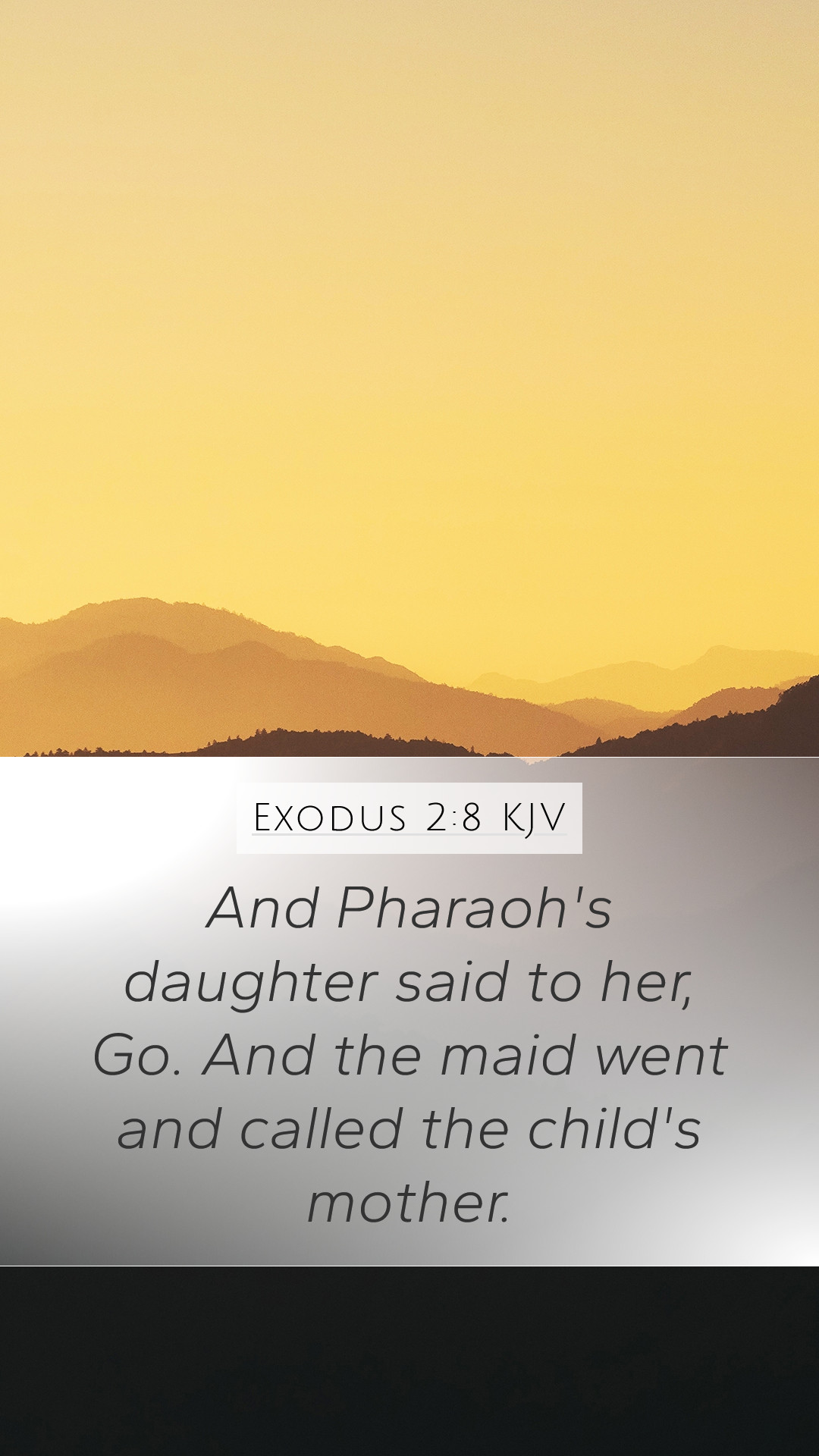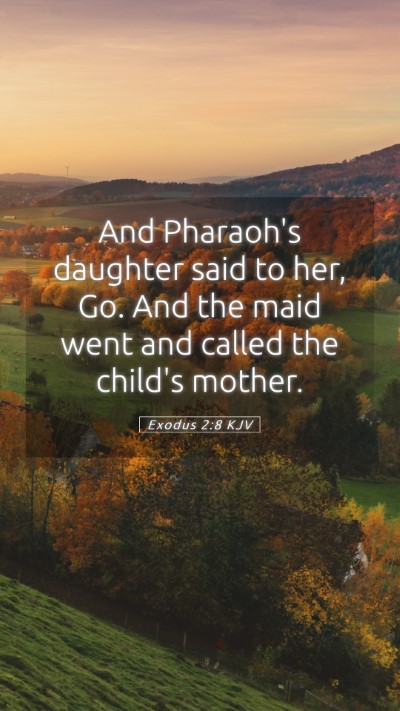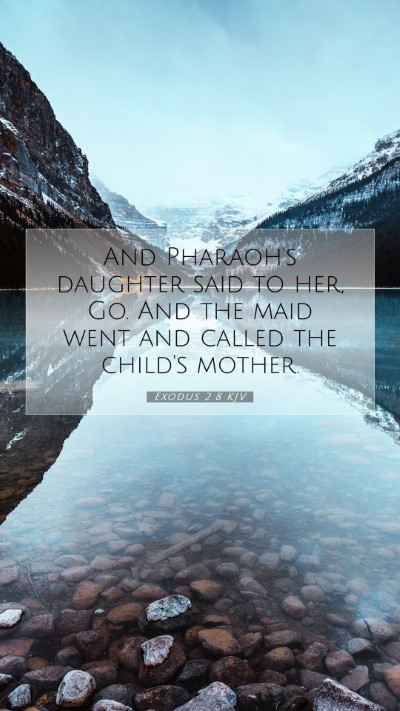Understanding Exodus 2:8
Exodus 2:8 states: "And Pharaoh's daughter said to her, 'Go.' So the girl went and called the child's mother." This verse is a part of the narrative surrounding the birth and early life of Moses. In this context, Pharaoh's daughter discovers baby Moses in the bulrushes while bathing, as his mother had placed him in a basket to save him from the Pharaoh's decree to kill all Hebrew male infants.
Bible Verse Meaning
The meaning of Exodus 2:8 can be derived from various public domain commentaries, which collectively enhance our understanding of this verse.
Matthew Henry's Commentary
According to Matthew Henry, this verse highlights the unexpected providence of God. He emphasizes how Pharaoh’s daughter, in an act of compassion, chooses to adopt Moses instead of condemning him. This decision not only saves Moses but also allows him to grow up in the Egyptian palace, which is significant for his future role as leader of the Israelites.
Albert Barnes' Notes on the Bible
Albert Barnes elaborates by noting how this diplomatic interaction between Pharaoh's daughter and the child's sister showcases God's plan and providence in protecting Moses from death. Barnes suggests that the willingness of the Egyptian princess to employ Moses’ biological mother signifies God's foresight and care for His people, as it leads to the eventual deliverance of the Israelites from oppression.
Adam Clarke's Commentary
Adam Clarke digs deeper into the implications of the term "girl" as used in this passage. He suggests it refers to Miriam, Moses' sister, demonstrating the importance of family bonds and the role of women in the deliverance narrative. Clarke highlights the idea that God uses ordinary people in extraordinary ways, reminding readers of His ability to work through familial and societal structures.
Bible Verse Interpretations and Insights
Collectively, these interpretations emphasize a few key themes:
- Divine Providence: This verse exemplifies how divine intervention orchestrates events to fulfill God's will, highlighting a central theme of scripture analysis.
- Compassion Across Cultures: The kindness shown by Pharaoh's daughter serves as a reminder that compassion can manifest across cultural and societal divides, encouraging believers to see humanity in others.
- Family and Community Roles: The role of Miriam, as depicted in this chapter, points to the significance of family and community involvement in God’s plans, promoting the idea of collective effort in realizing Biblical promises.
Application of Exodus 2:8
Understanding Scripture in the light of Exodus 2:8 can help believers apply these principles in everyday life:
- Recognizing how God’s providence works in one’s life can encourage deeper faith during difficult times.
- Showing compassion, regardless of societal status, can be a profound expression of God’s love.
- Engaging with family and community on spiritual matters enriches understanding and strengthens relationships.
Cross References
Exodus 2:8 is related to several other Bible verses that enhance its message:
- Exodus 1:22: "Then Pharaoh commanded all his people, saying, 'Every son who is born you shall cast into the river...'" This highlights the peril Moses faced as a baby.
- Exodus 2:10: "And the child grew, and she brought him to Pharaoh's daughter, and he became her son." This verse reflects Moses’ adoption and foreshadows his future role.
- Hebrews 11:23: "By faith Moses, when he was born, was hidden three months by his parents, because they saw he was a beautiful child, and they were not afraid of the king's command." This connects the faith of Moses’ parents to his destiny.
Conclusion
Exodus 2:8 presents complex themes of providence, compassion, and family dynamics within God's overarching redemptive plan. Through in-depth Bible verse analysis and commentary, readers gain not only historical insights but also practical applications for their daily lives. This understanding deepens one’s fellowship with scripture and enriches the communal experience in Bible study groups.
As you engage with displaced scripture like Exodus 2:8, remember the significance of interpreting difficult Bible passages through prayerful study and reflection, which will lead to a greater understanding of the meanings of Bible verses.


